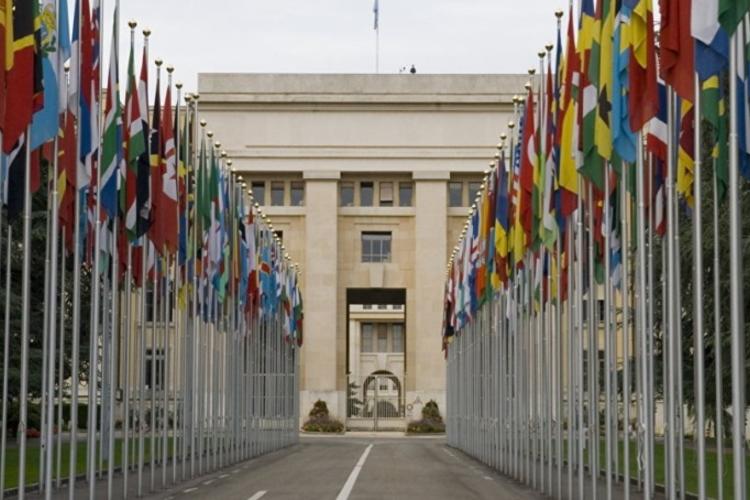Pertaining to the results of the 38th round of the Geneva International Discussions
December 13-14, 2016 saw a regular round of the Geneva International Discussions on Security and Stability in Transcaucasia established in accordance with the agreements dated August 12, 2008 and September 8, 2008. Official mission from the Republic of South Ossetia, headed by Murat Dzhioev, the Minister of Foreign Affairs of the Republic of South Ossetia, missions from the Republic of Abkhazia, Georgia, the Russian Federation and the USA as well as representatives of the EU, the UN and the OSCE took part in negotiations.
The discussions were held in two working groups: on security and humanitarian issues.
Much attention during the round was drawn to discussion on the problem of maintaining security and stability in regions and on non-use of force by Georgia against South Ossetia and Abkhazia. It was expected to finish the work on the draft document composed by the Co-chairs on a commitment to the principle of non-use of force, that could become an interim step in arranging legally binding agreements on non-use of force, which would have firm international guarantees. However, the destructive line of Georgian delegation, insisting on a priori inacceptable wordings, once again hampered finalizing and approving the draft document.
Detailed conversation on security and stability about South Ossetia-Georgian and Abkhazia-Georgian borders took place. The situation about South Ossetia-Georgian frontier was characterized as rather stable. The participants of the Discussions approved the advantages of further work of the IPRM, organized in framework of the GID, and emphasized the productivity of the “hot line”.
During the discussion on security and stability about South Ossetia-Georgia border, the participants marked the productivity of the IPRM in general and the “hot line” in particular. At the same time members of South Ossetia delegation expressed concern about recent facts of violation of the border by representatives of Georgia security services and about attempts made by Georgian citizens to cultivate territories of the Republic of South Ossetia.
Once again South Ossetia delegates reminded Georgian party of the suggestion made by authorities of the Republic to get to joint works on delimitation and demarcation of the state border between the Republic of South Ossetia and Georgia. It was marked that recently Georgian party began recourse to propaganda garbling, trying to present as “apprehensions” the facts when border guards detain Georgian citizens for illegal border crossing.
South Ossetia party expressed concern of NATO enlargement on territory of Georgia in general and NATO-Georgia military trainings that provide for exercising joint offensive operations with usage of American heavy military assets.
As an essential part of general security and humanitarian situation, issues related to the search of citizens of the Republic of South Ossetia, kidnapped and lost on territory of Georgia, were discussed as well. South Ossetia participants expressed hope that in 2017 the independent international expert would continue his work in search of the Ossetians, kidnapped by Georgian security agencies in October 2008.
As absolutely destructive and tendentious steps were taken the quarterly report of the MFA of Georgia “on the Human Rights Situation in the Occupied Regions of Georgia” and the statement of a group of states-friends of Georgia, in which they appeal to Russia for withdrawal of recognition of the Republic of South Ossetia and the Republic of Abkhazia, for peaceful solution of the “conflict in Georgia”, for military drawdown from the “occupied territories” and for reorganizing a “full-scale OSCE mission” in Georgia.
These are obviously another steps aimed at creating perverted images of South Ossetia and Abkhazia and attempts to isolate them from the international community.
Once again South Ossetia participants put on table the issue of returning by Georgia items of cultural value, including the unique Byzantine icon-triptych that had been stolen from South Ossetia museum and currently located in Georgia. Once again members of the delegation drew attention to the problem of preservation of those Ossetian historical-cultural monuments that are located on territory of Eastern Ossetia (Tyrsygom). This territory is currently under Georgian control and the Ossetians who were driven out are not allowed to go there.
The problem of refugees wasn’t discussed within the round, as renewal of negotiations on this subject would become possible only when Georgia gives up turning artificially the problem into a political issue.
An information session “Mother-tongue based education in multilingual environments” with international experts participating was organized in framework of the 38th round of the Discussions.
Next meeting in Geneva is scheduled for March 2016.
December 15, 2016, Geneva
